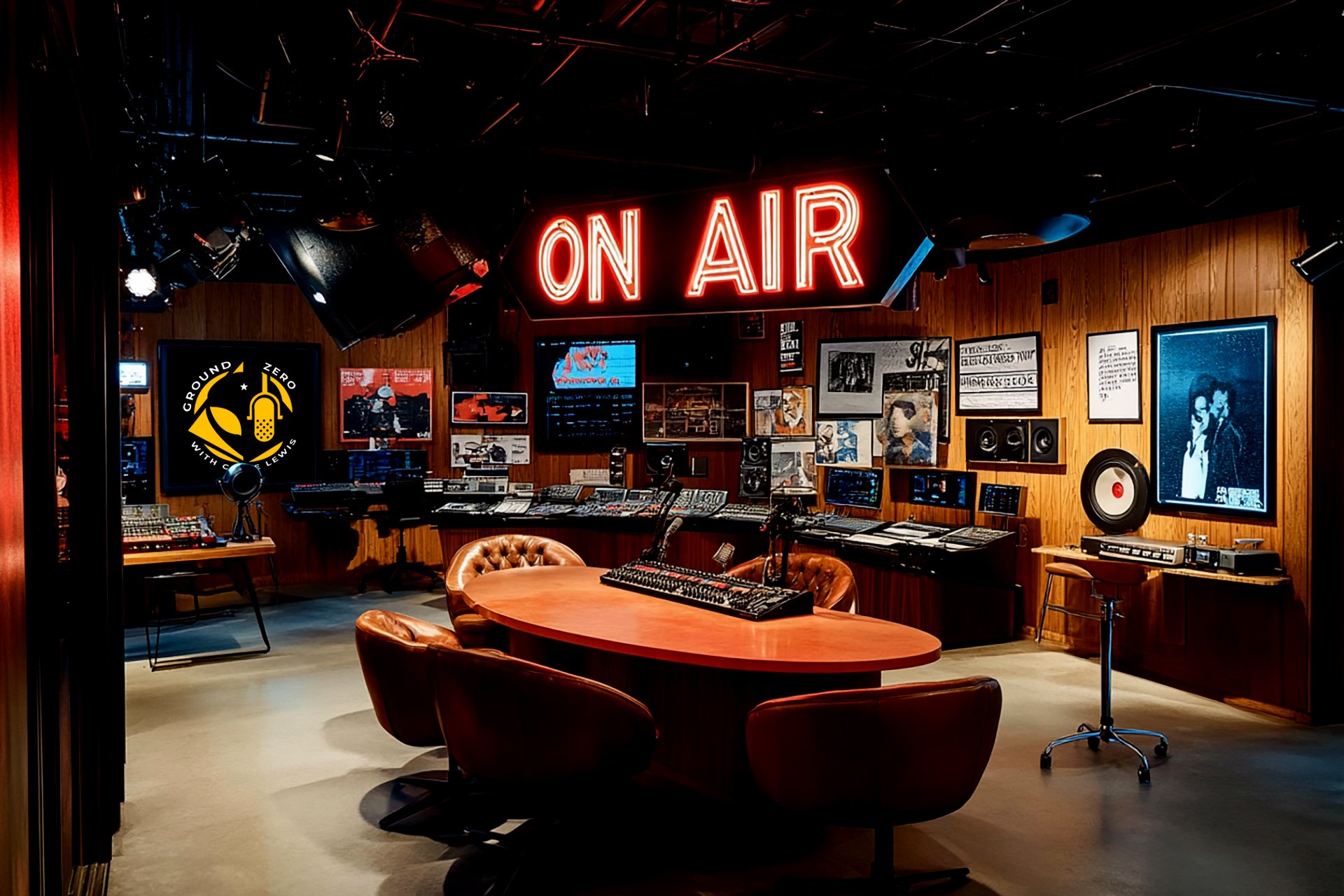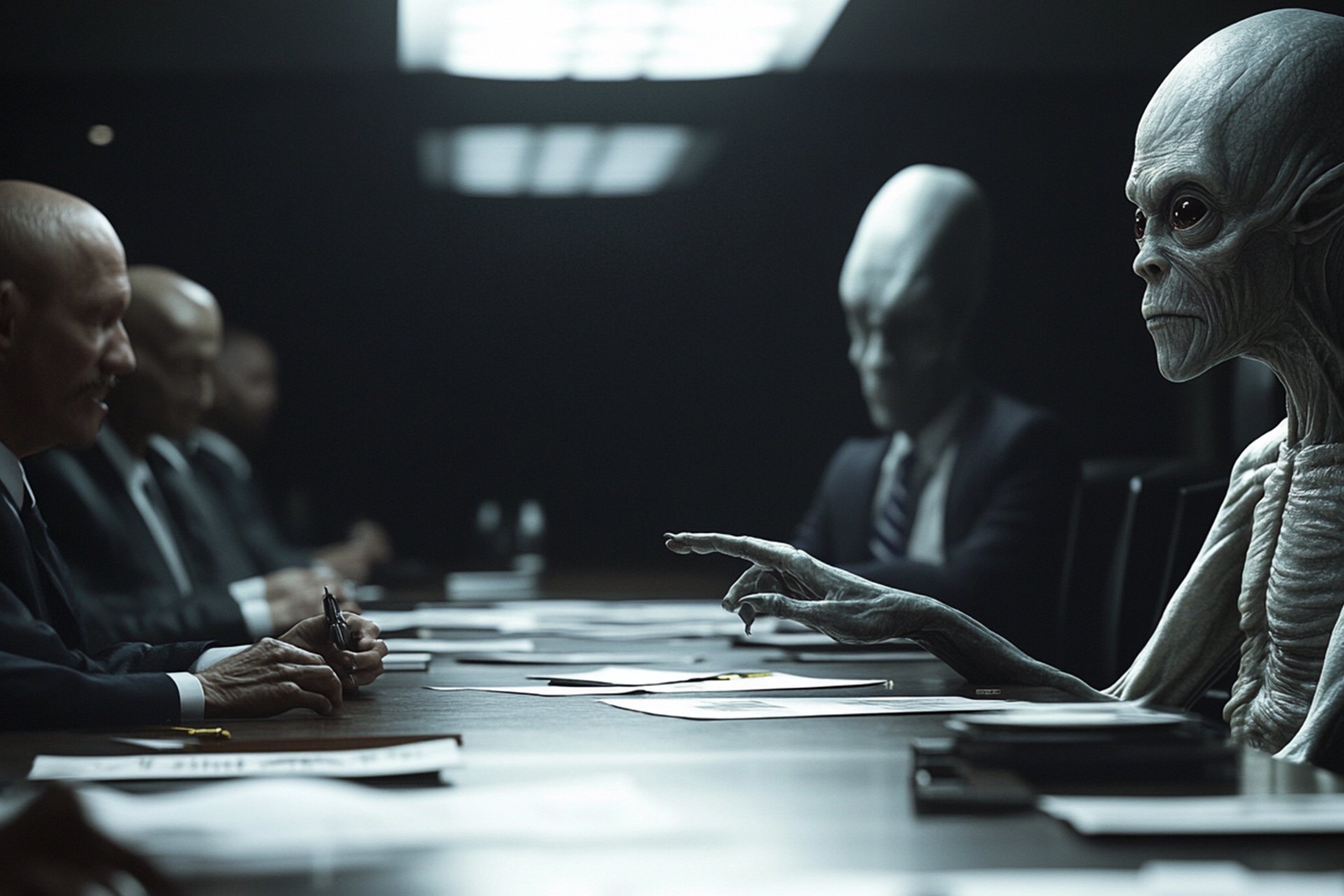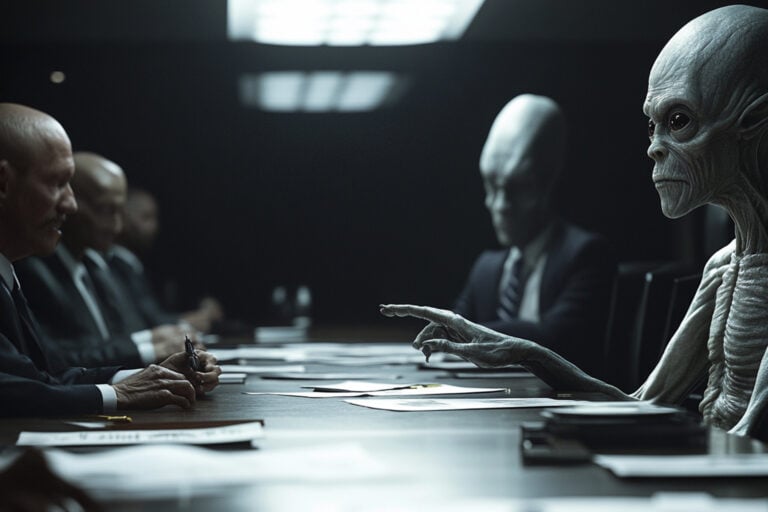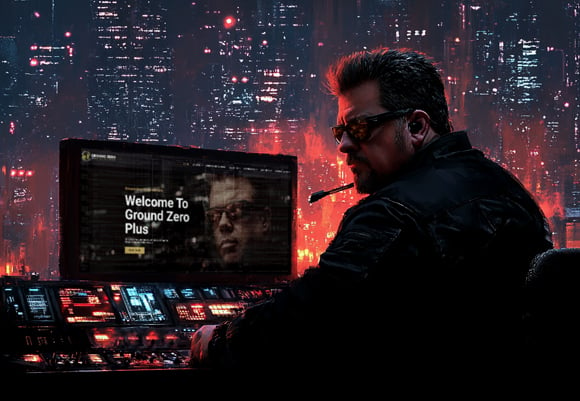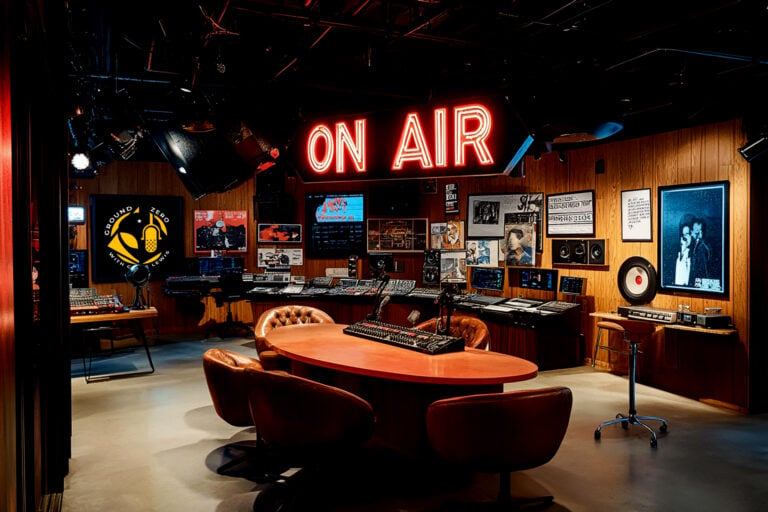Ground Zero At 30 Decades of Uncovering the Truth
Ground Zero At 30 Decades of Uncovering the Truth – In the shadowy realms between mainstream news and the unexplained, one voice has consistently challenged listeners to question reality for the past three decades. Ground Zero with Clyde Lewis celebrates its 30th anniversary this year, marking an extraordinary journey through conspiracies, paranormal phenomena, and alternative perspectives that have reshaped late-night radio.
The Voice in the Darkness
When Clyde Lewis first took to the airwaves in 1995, few could have predicted the cultural phenomenon his show would become. Beginning as a local broadcast in Portland, Oregon, Ground Zero emerged during a pivotal moment in American consciousness—sandwiched between the end of the Cold War and the approaching millennium, when uncertainty about the future permeated the zeitgeist.
Lewis, whose theatrical background and deep baritone voice made him instantly recognizable, brought something different to the radio landscape. Unlike many of his contemporaries, he approached fringe topics with a journalist’s skepticism combined with an entertainer’s flair. This unique approach resonated with listeners who craved substance beyond sensationalism.
Ground Zero At 30 Decades of Uncovering the Truth
The show’s early years coincided with the X-Files era, when government distrust and interest in UFOs reached new heights. Ground Zero captured this cultural moment, but what’s remarkable is how the program evolved beyond the trends of the 1990s, continuously reinventing itself while maintaining its core mission.
From Y2K fears to post-9/11 conspiracies, from the 2012 Mayan calendar prophecies to modern concerns about AI and transhumanism, Ground Zero has served as a chronicle of America’s relationship with the unexplained. The show has featured thousands of guests—whistleblowers, scientists, authors, eyewitnesses—creating an oral history of alternative perspectives that might otherwise have been lost.
Beyond Entertainment: Cultural Impact
What separates Ground Zero from mere entertainment is its tangible cultural impact. The show’s investigations have occasionally crossed into mainstream awareness, such as when Lewis conducted groundbreaking coverage of the Phoenix Lights incident or his early reporting on military experiments with weather modification technologies.
The “Ground Zero Lounge Lizards,” as the show’s dedicated fan community calls themselves, represent more than just an audience. They’ve formed a nationwide network of citizen journalists who report unusual occurrences and challenge official narratives. This community has grown from call-in participants to a sophisticated online network that extends the show’s reach far beyond radio.
The Digital Evolution
As media consumption shifted dramatically over three decades, Ground Zero adapted without compromising its identity. The show embraced podcasting early, developed a robust online presence, and utilized social media to create an immersive experience that extends beyond broadcast hours. What started as a radio program has transformed into a multimedia platform where listeners engage with content across various formats.
This adaptation wasn’t just technological but conceptual. While competitors sometimes descended into echo chambers, Lewis maintained his commitment to featuring diverse viewpoints. The show has hosted skeptics alongside believers, scientists alongside mystics—creating dialogues rather than monologues.
Controversial but Consistent
Not without controversy, Ground Zero has sometimes been criticized for exploring theories later proven inaccurate or for platforming contentious figures. Yet even critics acknowledge Lewis’s willingness to revisit topics, admit errors, and maintain integrity in an ecosystem often lacking accountability.
What remains consistent is the show’s underlying philosophy: that official narratives deserve scrutiny, that patterns connect seemingly disparate events, and that listeners should think for themselves. This approach has proven surprisingly durable across changing political and social landscapes.
Looking Forward: The Next Decade
As Ground Zero enters its fourth decade, the landscape of alternative media has transformed dramatically. What was once fringe is increasingly mainstream, with conspiracy theories entering everyday discourse and paranormal investigation becoming commercialized entertainment.
In this new environment, Ground Zero’s role evolves yet again. Rather than simply identifying conspiracies, the show increasingly helps listeners navigate a world where disinformation competes with revelation. Lewis’s experience provides historical context that newer platforms often lack, distinguishing between recycled theories and genuinely new phenomena.
The Legacy
Three decades on, Ground Zero’s legacy extends beyond broadcasting achievements. The show preserved topics that might otherwise have been forgotten, connected isolated witnesses who discovered they weren’t alone in their experiences, and maintained spaces for questioning in an increasingly partisan media environment.
Perhaps most importantly, Ground Zero demonstrated that exploring the unexplained doesn’t require abandoning critical thinking. Lewis’s approach showed that one can be open to extraordinary possibilities while still demanding extraordinary evidence.
As we celebrate this milestone anniversary, we’re really celebrating something larger: a thirty-year conversation about what lies beyond conventional understanding—a conversation that has enlightened, entertained, and occasionally unnerved, but always encouraged listeners to look beyond the surface and consider what might exist at ground zero of our consensus reality.
The truth, as they say, is still out there. And for three decades, Clyde Lewis has been helping us find it. Contact us for more info.

